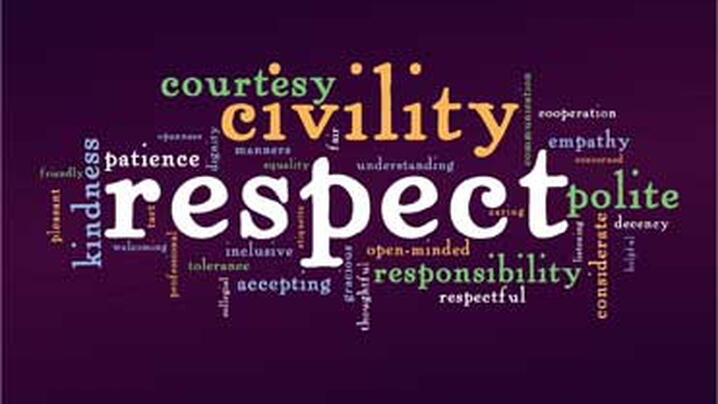
Something is breaking in the heart of local government. Across towns, cities, and counties, public servants—the very people responsible for keeping our communities running every day, every week, every month and every year—are facing growing and insidious threats: bullying, harassment, and abuse on the job.
These are not isolated incidents. From clerks and code enforcement officers to public health workers and city/county managers, local government employees are increasingly reporting harassment not only from the public they serve, but also from elected officials or even colleagues. The effects are real and they’re dangerous to employee well-being, to public trust, and to the long-term health of our communities.
Impact on Staff
One of the clearest signs of the damage is in the recruitment and retention crisis many local governments are now facing. Talented professionals are leaving public service. Potential candidates are thinking twice about pursuing a career that seems to mean accepting that abuse as part of the job. In many local governments, vacancy rates are climbing while applicant pools are shrinking. Local government is largely person-to-person services that don’t happen if there isn’t someone willing to fill the job. And it's not just about wages or benefits motivating the exodus—workers are fleeing local government career fields seeking psychological safety and the expectation of basic respect in the workplace and in the communities where they live. Who wants to work in an environment where threats are shrugged off, angry words elevate into a lack of personal safety, public meetings have become arenas for intimidation, and social media campaigns target staff by name?
The cost of this growing toxic public work culture is steep. Workers are facing personal impacts like increased anxiety, burnout, and even PTSD on top of the known mental health impacts already inherent in many public service careers. Local governments are also paying more in turnover costs, recruitment strategies, and the loss of institutional knowledge costing tax payers more to maintain the same levels of service. Training a new employee can cost tens of thousands of dollars. When seasoned staff leave, they take years of expertise with them, leaving governments less effective, less responsive, and less cost-efficient.
Respect
Let’s be clear: this is not about shielding government employees from criticism or accountability. Public servants should and do expect scrutiny. But there’s a line between free speech and abuse and that line is increasingly being crossed, often by the very public they are trying to serve.
It’s time for communities to take a hard look at the climate this trend has created and exacerbated with social media. What happens when even increasing pay isn’t enough for workers to subject themselves to the personal impacts we are seeing? Will it take no answer on the other end of the line when we dial 911 or when there isn’t a social worker to check in on a neglected child to open our eyes? That reality could be closer than we think if we don’t start supporting our public workers with the same seriousness we expect in their performance.
Respect should not be negotiable. We all know toxicity drives good people away, and when that happens, the entire community suffers. Safe, respectful workplaces aren’t a luxury. They’re the foundation of good government.
The ability for local government employees to enjoy non-work time in their own community without personal attacks keeps the backbone of our civic lives strong.
I come from two generations before me that committed their lives to public service and I have carried that family legacy for 25 years myself. I married into the same family culture. Serving others is practically in our DNA, yet we’ve found ourselves fearing our children may follow these career paths and where they may be headed. In my worst fears, that they would be victim to escalating violence that seemingly softer forms of bullying precede if they did.
Endgame?
Growing up and working, I’ve witnessed the frequency and intensity of attacks on public employees grow. Somehow it has become acceptable to launch personal barbs in every public comment, on social media, and even from seated elected officials—dealing unsubstantiated accusations, derogatory criticism, persecution without due process, and then expecting workers to show up on time and unphased the next day for another round. Public servants are becoming our whipping posts for anger over anything we don’t like—taxes, lack of immediate satisfaction, or partisanship when it doesn’t align with our own partisan ideology. Ironically, these are all things that will get worse if the workforce evaporates and there is no one there to punish or serve.
I don’t pretend that this issue is going to be easy to navigate. In many ways, this is a byproduct of larger cultural shifts that justify uncivil behavior instead of correcting it or a desensitization to empathy from behind a keyboard. My concern is that if we don’t figure out how to address it for our public workers—through policies, education, or advocacy—the backbone of our communities that often gets taken for granted anyway will erode and disappear and the integrity and nobility of public service lost with it.
Engage with your local government peers on issues like this and more at ICMA Annual Conference, October 25-29 in Tampa.
New, Reduced Membership Dues
A new, reduced dues rate is available for CAOs/ACAOs, along with additional discounts for those in smaller communities, has been implemented. Learn more and be sure to join or renew today!
